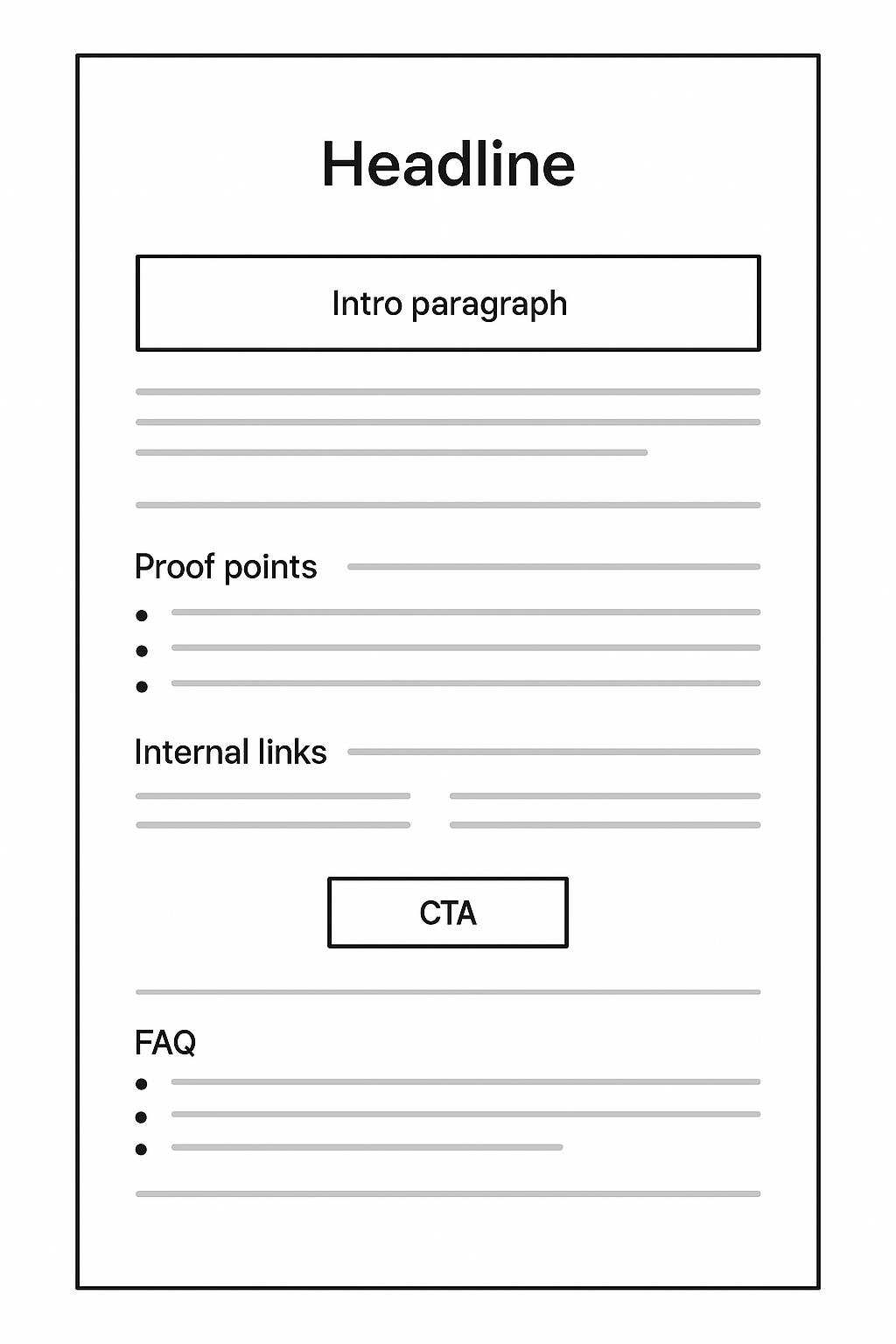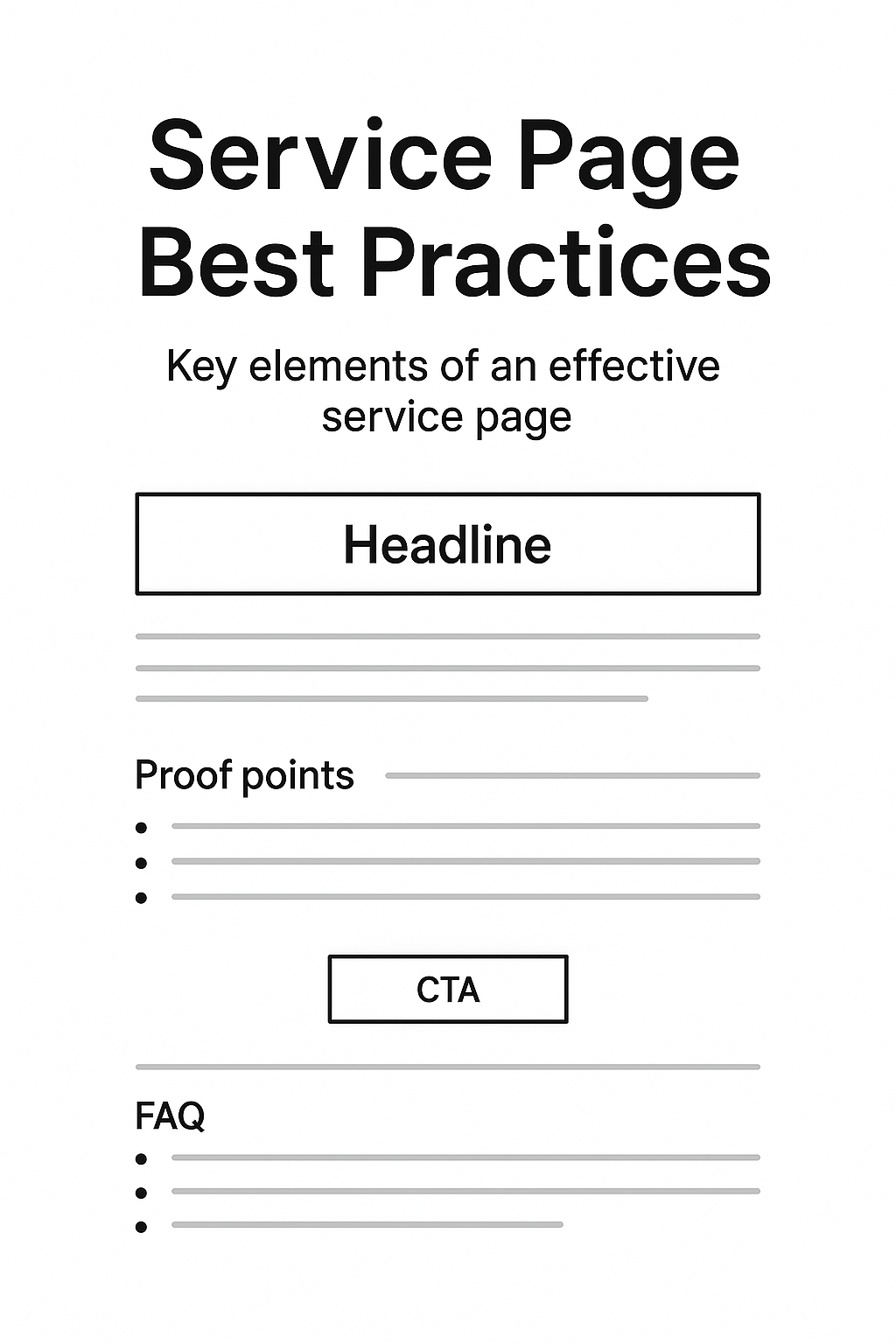If your service pages are not generating traffic or conversions, you are not alone. Many businesses put time into writing them, only to find they do not rank or they leave visitors unconvinced. Today the challenge is even greater. It is not just about appearing in Google’s search results but also about being cited in AI Overviews and answer engines.
The good news is that by structuring your service pages in a specific way, you can satisfy both Google’s algorithms and the new generation of AI-driven search. Here is a step-by-step blueprint you can apply.
Why service pages matter
Your service pages are often the most commercially valuable parts of your website. They are where people decide if your business can help them and if they should get in touch. A well-optimised service page:
-
Attracts qualified visitors via search
-
Explains your offer in clear, human terms
-
Builds trust and authority with proof points
-
Provides a clear next step to convert
If these pages underperform, you will miss out on both organic leads and conversions.
Structuring for Google search
Google’s ranking systems still rely on fundamentals. When structuring a service page for SEO, focus on:
-
Headline and subheadings: Use clear H1 and H2 tags with your target keywords naturally included.
-
Intro paragraph: State what the service is, who it is for, and the outcome it delivers.
-
Keyword coverage: Place your main keyword in the first 100 words, then use variations throughout.
-
Internal links: Point to relevant blogs, case studies and other services.
-
On-page UX: Short paragraphs, scannable lists and visual breaks make it easy to read.
When these basics are in place, your page is optimised for traditional search visibility.

Structuring for AI Overviews
AI Overviews and answer engines extract content differently to search engines. They are looking for direct, authoritative answers. To optimise for this:
-
Answer first: Open your page or section with a concise definition or explanation.
-
Entity clarity: Define your company, your service, and related terms in unambiguous language.
-
Schema markup: Add structured data for Organisation, Service and FAQ so machines can understand your page.
-
FAQs: Use real customer questions and phrase them naturally.
-
Specifics matter: AI engines prefer content with numbers, examples and real-world context over vague claims.
This ensures that when AI generates an answer, your page is more likely to be cited or referenced.

The hybrid service page template
Here is a simple structure you can follow:
-
H1 title with the service name and benefit (e.g. “SEO Services That Drive Long-Term Growth”).
-
Intro paragraph with the plain answer: what the service is, who it is for, and why it matters.
-
Detailed breakdown of what is included.
-
Benefits section showing outcomes and proof (data, testimonials, logos).
-
Internal links to blogs, case studies and related services.
-
FAQ section with 3–5 common questions.
-
Strong CTA: Book a call, request an audit or download a guide.
This template gives both Google and AI Overviews the signals they need, while guiding visitors through a persuasive journey.
Common mistakes to avoid
Many service pages fail because they:
-
Rely on jargon or generic descriptions
-
Stuff in keywords without adding value
-
Lack proof points such as testimonials or case studies
-
Miss structured data, leaving AI engines uncertain
-
Hide the CTA at the bottom with no clear next step
Avoiding these traps keeps your service pages both human-friendly and machine-readable.
How Victory Digital helps
At Victory Digital, we specialise in building service pages that do two jobs at once: rank in Google and appear in AI-generated overviews. We apply structured data, entity mapping and our proven content framework to make sure your pages are discoverable and persuasive.
Our Client Dashboard tracks progress so you can see improvements in search visibility, AI mentions and conversions in one place.
If you are unsure whether your service pages are working hard enough, we can audit them and build a clear 90-day optimisation plan.





